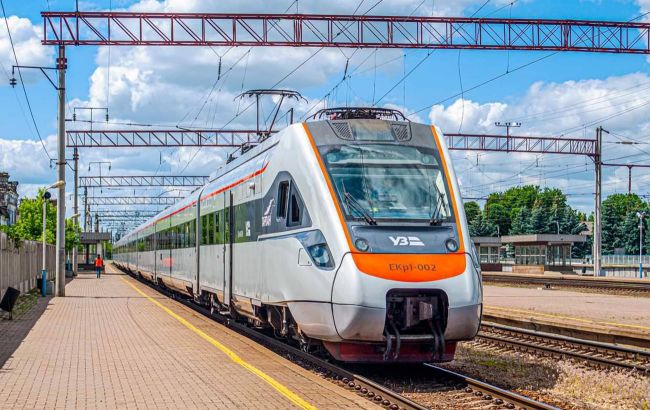Russia launches massive wave of attacks on Ukrainian Railways: What's the strategy
 Photo: Drone attacks also cause economic damage (facebook.com_Ukrzaliznytsia)
Photo: Drone attacks also cause economic damage (facebook.com_Ukrzaliznytsia)
Since the summer, Russia has launched a large-scale wave of attacks on Ukrainian Railways, but the network is still holding out. Russia's goal is to sow panic and mistrust among the population and hit the economy, according to Ukrainian Railways CEO Oleksandr Pertsovskyi.
Why Russia attacking Ukrainian Railways?
"Their first aim is to sow panic among passengers, their second aim is to hit the overall economy," Pertsovskyi says in an interview, commenting on Russia's attacks on the railway.
According to the CEO of Ukrainian Railways, since mid-summer, Russia has been attacking railway substations and other infrastructure nodes with an average of 6-7 long-range Shahed kamikaze drones every night.
"They are ... acting systematically, knocking out one substation after another or key rail hubs in order to stop passenger trains and sow panic and distrust among the people," the official says.
Russian attacks have become regular due to the increase in the production of Shahed drones.
The company's CEO said that the attacks, which affected dozens of substations, are linked to the rapid growth in the number of long-range drones produced by the Russian military-industrial complex.
"Previously, they simply did not have sufficient resources for a single combat drone, such as a Shahed, to hunt down a locomotive. Now they can afford to use Shaheds to hit individual locomotives rather than strategic targets," Pertsovskyi explains.
Currently, the railway is recovering from each strike, he said.
Ukrainian Railways' losses from Russian attacks
Reuters reminds us that train service disruptions due to Russian attacks last from six to twelve hours, and when electric locomotives are out of service, diesel locomotives and diesel fuel must be used instead.
In addition, the operation of diesel locomotives, which is resorted to after attacks by Russia, is more expensive for Ukrainian Railways, which is already in an unsatisfactory financial situation, Reuters notes.
The point is that the operation of diesel locomotives is about five times more expensive per kilometer than their electric counterparts.
Saboteurs who follow Moscow's instructions to disrupt the work of Ukrainian Railways are also a problem for the normal functioning of Ukrainian Railways, Pertsovskyi concludes.
Russia regularly shells Ukrainian Railways trains. This morning, there were reports of a Russian attack on the railway in the Kirovohrad region.
Pertsovskyi also recently reported that Russians are trying to destroy key junction stations by striking the Ukrainian Railways.

